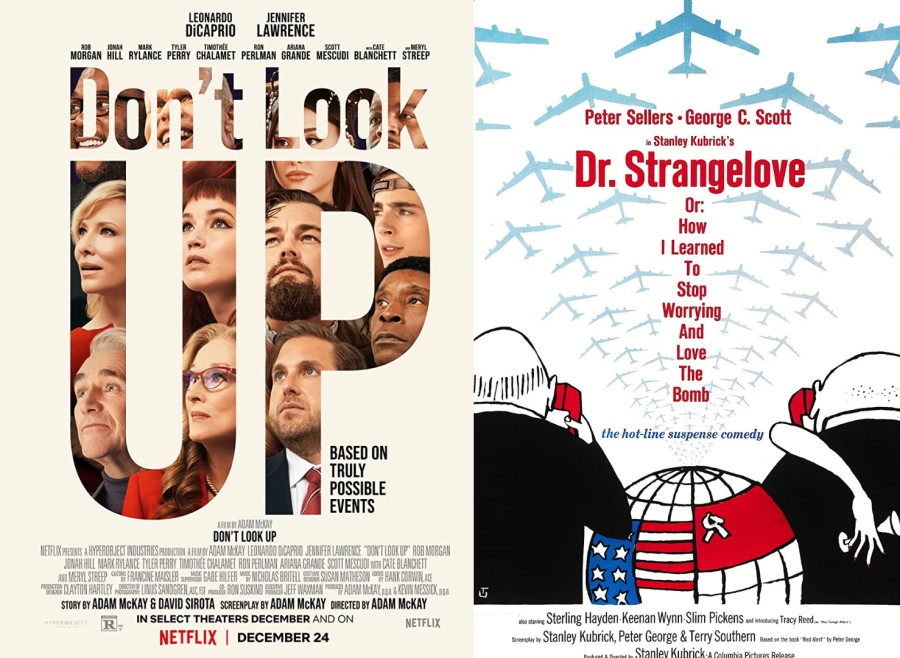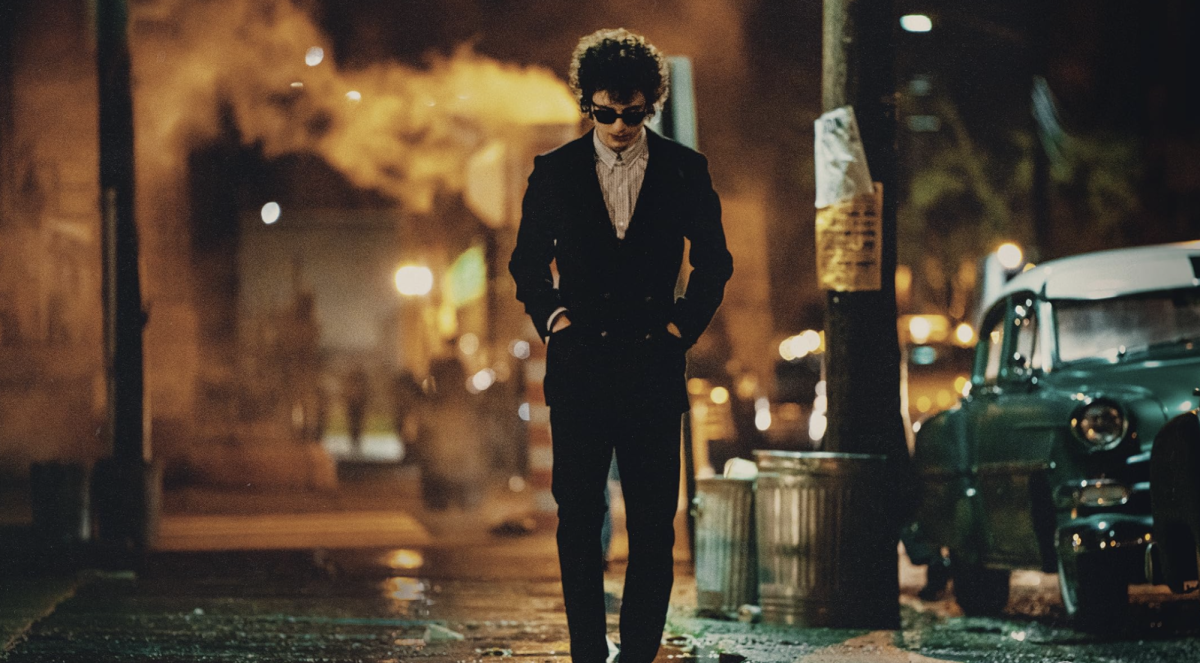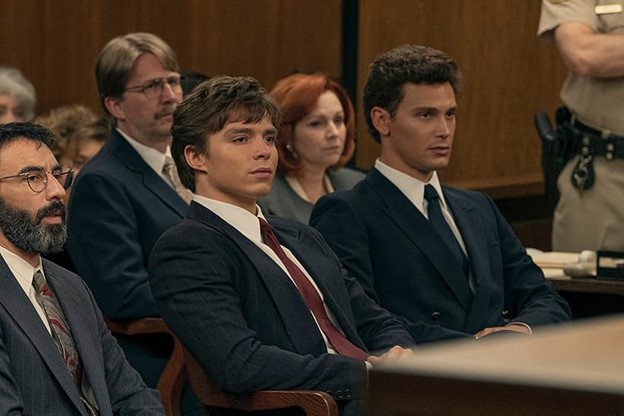The doomsday clock has been ticking as of late, if you needed a reminder. According to the Bulletin of Atomic Scientists’ doomsday statement, which uses a “Doomsday Clock” to reflect their analysis on how close humanity is to destroying itself, the world is 100 seconds from midnight – midnight being global nuclear annihilation.
The thought of the world ending is a dreary one, but much creative effort has come from it. Some films aim to tell us stories of what might lead to the end of days, or how an existential disaster may be averted, or what life may be like after the crumbling of civilization. Regardless, the messages of hope, survival and the need to cooperate have long captivated moviegoers.
With the end declared to be near, what better time than now to indulge in some incredible apocalyptic films? Beyond entertaining you, perhaps one of the three movies listed below will give you some ideas for how to survive the coming apocalypse.
“Doctor Strangelove or: How I Learned to Stop Worrying and Love the Bomb”
“Doctor Strangelove,” is a 1964 dark comedy from director Stanley Kubrick. The film deals with the destructive capabilities of nuclear bombs and the folly of the bureaucratic protocols that accompany their use.
The story follows the repercussions of a psychotic general, General Jack Ripper, ordering U.S. pilots to deploy nuclear bombs on Russia. Ripper is convinced this is the only solution because he believes the Russians have been contaminating Americans’ “fluids” and it is justified to retaliate swiftly and with full force.
Once this order has been received with full acceptance by U.S. pilots, the hopelessness of the situation in the U.S. government’s war room supplies the comedic aspect of the film.
“Doctor Strangelove” is a film with an enthralling plot that endures with the performances of its actors. Peter Sellers, who is hilarious throughout, plays the roles of Dr. Strangelove, the president and Captain Mandrake.
While these are the three most key characters in the film, the performance of George C. Scott, as General Turgidson, is also notable. Throughout, he delivers morbid line after morbid line, yet does so with a goofiness that at times distracts from what he’s saying.
Although Sellers and Scott are relics of a bygone cinematic era, the laughs they deliver are timeless.
“Don’t Look Up”
“Don’t Look Up,” directed by by Adam McKay, is a 2021 dark comedy. The film captures the effort to save Earth from a giant asteroid hurdling towards it. The story follows an astronomy professor at Michigan State University, Dr. Randall Mindy (Leonardo Dicaprio) and his PhD. candidate pupil Kate Dibiasky (Jennifer Lawrence). The two academics discover an asteroid that’s heading for Earth.
They spend the rest of the film attempting to convince the United States government to take actions to destroy the asteroid before it impacts the planet. However, their efforts are constantly undermined by political games, social media misinformation and the hubris of a big-tech visionary.
What makes this film so great — beyond its star-studded supporting cast of Meryl Streep, Cate Blanchett, Tyler Perry, Jonah Hill and Timothee Chalamet — is its on-the-nose social commentary.
Although some may be uncomfortable with a movie seemingly calling their behavior out, the modern age — now more than ever — calls for a moment that tosses away subtlety when making a statement.
One of the film’s main critiques is on our society’s unwavering faith in tech giants as saviors who allow everyone to have, and eat, their cake. As the film depicts, this faith can and will (if we allow it) lead to utter catastrophe.
The movie also explores how our culture is currently designed to draw attention away from the real issues at hand, even if they’re issues of existential importance. This is illustrated through the actions of the president, played by Meryl Streep, when she starts the “don’t look up” campaign. The audience is also given glimpses of misinformation campaigns happening on social media.
“Mad Max”
“Mad Max” is a 1979 Australian action, science-fiction film directed by George Miller. The movie is set in the aftermath of a world plunging into war and famine after the depletion of its oil reserves. Australia, although unscathed by the nuclear tragedy that annihilated most of the world, has been sent into total disarray.
Max (Mel Gibson) is an officer with the Main Force Patrol, which attempts to maintain Australia as the final holdout of civility in a world gone mad. He believes in holding together a semblance of law and order in Australia, until a series of traumatizing events sends him first on the run, then on the unyielding pursuit of vengeance.
The strangeness of the characters makes “Mad Max” such a classic apocalypse movie. Max’s nemesis is “Toecutter,” who leads a gang of roving maniacs through the wastelands of Australia.
Toecutter, with his vicious, unpredictable ways and completely deranged appearance, is memorable and terrifying. Furthermore, the members of his gang are equally cruel and volatile, making it clear in the viewers’ minds exactly the type of people they wouldn’t want to cross paths with in a post-apocalyptic world.
Along with peculiar villains, there is much oddity and intrigue among the heroes and neutral characters of the film, including Max. His boss, the chief of the Main Force Patrol, is loud, large and eccentric. Although he’s a pillar of what’s left of law and order, it’s obvious that he enjoys life amid the mayhem of the new world.
The kind, elderly woman who Max and his young family meet on the road, with antiquated leg braces and a fiery resolve to help them flee danger, has quite the story to tell.
Somehow, despite being elderly, disabled and caring for her adult son, she’s been able to maintain her large property and avoid confrontations with gangs of road-wandering marauders. That is, until Max arrives.
Max begins this film as an ambitious, optimistic law enforcer who simply wants what’s best for his family. However, the apocalypse is kind to no one and its’ cruelty transforms Max.
After the events seen in “Mad Max,” we understand why Officer Max Rockatansky, a young husband and relatively new father, turns from a life of peacekeeping to embrace insanity.
Whether you have love for the apocalyptic genre and its quirks, or you’re trying to cope with our world’s ever-present sense of impending doom, there is a film for it.
Ryan Long can be reached at [email protected].


















